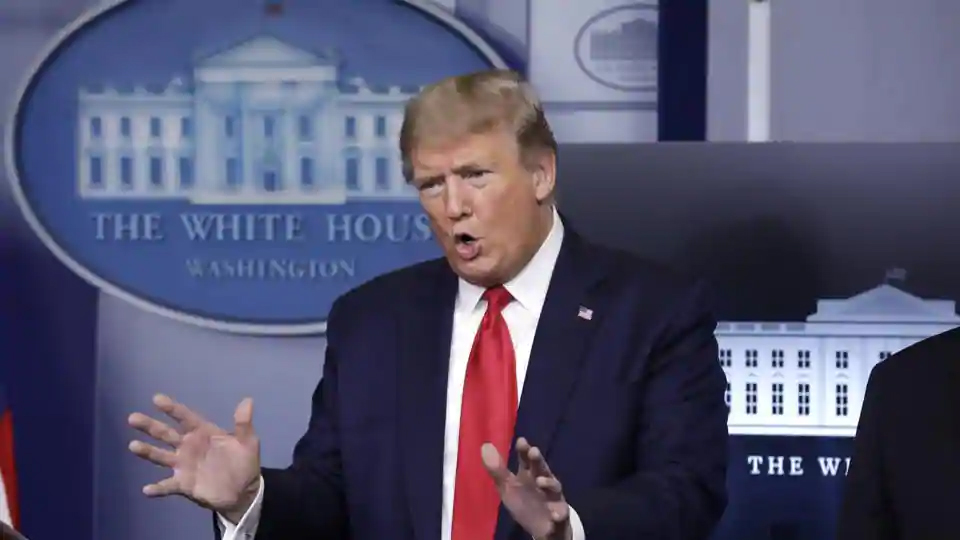US coronavirus deaths rose by 2,228 in a single-day record on Tuesday as President Donald Trump escalated his feud with the World Health Organization announcing a hold on US funding for it in a move widely seen as an attempt to deflect mounting criticism of his administration’s missteps in handling the outbreak.
More than 25,980 people had died of the coronavirus in the United States till Tuesday evening, according to the Johns Hopkins tracker and 608,377 had been infected – almost a third of the total number of cases in the world, which was close to 2 million; the toll worldwide was 126,557.
Tuesday was the worst the United States had seen yet, overtaking the previous single-day record of 2,069, last Friday. Public health officials had warned before that this week and the one before would be the most painful yet, with comparisons to pivotal events in US history such as the Pearl Harbor attacks in 1941 and the terrorist attacks of September 11, 2001.
Reuters news agency reported the real toll was far in excess as it did not include the 3,700 deaths in New York City that had been presumed to be coronavirus-related but had not been tested.
The surge in cases and deaths came amidst growing optimism that the country may be nearing the peak after which these numbers will begin to go down. Officials have cited the flattening of the curve in some hotspots such as New York and New Jersey, among signs that give them hope.
The Trump administration has been pushing for reopening the country, the society and the economy. The president announced Tuesday bipartisan groups of advisers he will be consulting to shortly determine the way forward. The decision to end or continue social-distancing and other mitigation efforts would rest ultimately with state governors.
The president acknowledged as much at the daily briefing Tuesday, dialling down an escalating feud with governors, some of whom have publicly pushed back against his claims of “total” authority in deciding when to end the mitigation measures and threatened to defy him if he persisted.
But the president predictably dialled up his spat with the World Health Organization, which is in the middle of leading a global response to the epidemic that had hit nearly 160 countries, killed more than quarter of a million people and infected close to two million people.
“We have not been treated properly,” Trump said, as he announced the suspension of the US funding, which is around $450 million, for a period of 60 to 90 days.
During the duration of the hold, the president said, the United States will conduct a review to “assess the World Health Organization’s role and severely mismanaging and covering up the spread of the coronavirus”.The president accused the WHO of not alerting the world about the critical significance of the outbreak, opposing his administration’s ban on foreigners travelling from China and then for siding with China and helping it conceal the true extent of its outbreak; a list of complaints he has aired before.
The president has come under mounting criticism for his administration’s delayed and botched response to the outbreak, stemming in part from his own reluctance to acknowledge the seriousness of the impending crisis and delaying mitigation efforts till much after the first cases and fatalities.
Trump’s criticism of the WHO of its response to the outbreak and then papering over China’s suppression of numbers run counter to his own praise for both the world body and China.
“CDC (Centers for Disease Control and Prevention) & World Health have been working hard and very smart,” he tweeted in February. And he has praised China often in tweets and remarks.
President Trump has severe US ties with a number of world bodies or scaled them down now: the Paris Accord on climate change (2017), UNESCO (2017), Iran deal (2018) and UNHCR (2018). The president has complained about US contributions to world bodies such as the United Nations.
In another development, the Washington Post reported that President Trump’s name will be printed on cheques the US treasury will be sending to American families as part of the $2.2 trillion stimulus package. This has been called an unprecedented move intended to derive political capital from what was actually a bipartisan effort, supported by both parties.


